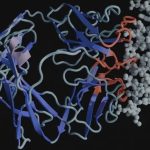EvolutionaryScale, an AI for biology startup, raises $142M in funding to revolutionize drug discovery and life sciences

EvolutionaryScale, an emerging AI startup at the intersection of biology and life sciences, announced on Tuesday that it has secured an impressive $142 million in seed funding. The funding will be used to develop advanced AI models capable of generating novel proteins, which are essential for scientific research and innovation.
The funding round was led by former GitHub CEO Nat Friedman, Daniel Gross, and Lux Capital, with participation from Amazon and NVentures, the venture arm of Nvidia. Alexander Rives, EvolutionaryScale’s co-founder and chief scientist, said that the capital will be directed towards training next-generation AI models and expanding their team to collaborate closely with the biotech industry.
Alongside this funding announcement, EvolutionaryScale also released ESM3, a pioneering AI model designed to create proteins for applications in drug discovery and materials science. ESM3 was trained using an unprecedented 1 trillion teraflops of computing power, surpassing any other known model in the field of biology.

EvolutionaryScale ESM3
Leveraging a dataset of 2.78 billion proteins representing Earth’s natural diversity, ESM3 stands as the first generative model for biology that simultaneously considers the sequence, structure, and function of proteins. This breakthrough enables scientists to both understand and create new proteins, effectively making biology programmable.
One of the remarkable achievements of ESM3 is its ability to produce a new Green Fluorescent Protein (GFP), a feat that would naturally take 500 million years of evolution. The model allows scientists to interactively prompt the AI to create proteins, opening new avenues in drug discovery, materials science, and even carbon capture.
“ESM3 represents a future where AI becomes an indispensable tool in biology, enabling us to engineer from first principles, akin to how we design structures, machines, and software,” Rives stated.
EvolutionaryScale plans to release multiple versions of the ESM3 model. The smaller version will be open-sourced for non-commercial research, while AWS and NVIDIA will offer commercial access to the more extensive model, providing a broad spectrum of users with access to this revolutionary technology.
The company has already demonstrated ESM3’s capabilities by engineering a novel fluorescent protein that deviates from the natural evolutionary path, a process that would otherwise take nature half a billion years. This achievement underscores the transformative potential of AI in biological engineering. The scientific team behind the ESM models is part of a global coalition of over 160 signatories dedicated to advancing a framework for responsible development.
EvolutionaryScale envisions its AI being applied to a myriad of uses, from accelerating drug discovery to engineering microbes that can degrade plastic waste, as Alex Rives shared with Reuters. The use of AI in developing new biological systems is a rapidly growing field, attracting significant interest and investment.
Josh Wolfe, co-founder and managing partner of Lux Capital, likened this development to a “ChatGPT moment for biology,” highlighting the creation of the first large language model specifically designed for generating novel proteins and biological systems.
EvolutionaryScale isn’t alone in this pursuit. In May, OpenAI, backed by Microsoft, announced a collaboration with French pharmaceutical giant Sanofi to enhance its drug development projects using AI.
However, this exciting frontier also raises concerns. Experts have pointed out the potential risks of generative AI in creating bioweapons, such as harmful pathogens or toxins.
Founded in July 2023 by former Meta researchers, EvolutionaryScale’s models are poised to support groundbreaking research and development across health, environmental science, and beyond. Since its inception, EvolutionaryScale has raised over $142 million in seed funding, driven by key investors like Nat Friedman, Daniel Gross, Lux Capital, Amazon, NVentures, and several angel investors.

EvolutionaryScale




